Mormons try to live deliberately, organizing their lives so as to be prepared for the next step, whether it be college, marriage, parenthood—or death. Because Mormons are Christians, they aren’t afraid of death. Yes, some might be afraid of the physical process of dying, but they aren’t afraid of what happens after death.
As I get older, I spend more time thinking about that step. While I don’t anticipate reaching it any time soon, it’s never too soon to get ready, and part of getting ready is to understand what will happen. Only by knowing that can I be prepared to have a great eternity.
Life is Just One Step in Our Eternal Lives
Mormons believe that life is a three-step process. The first step happened before we were born. We lived with God for a while before we were born. We were spirits, but we spent our time learning and preparing for life on earth. Our birth was a transition, not a beginning. Death is a transition, not an ending. It’s the next step in our eternal lives, and a particularly exciting one.
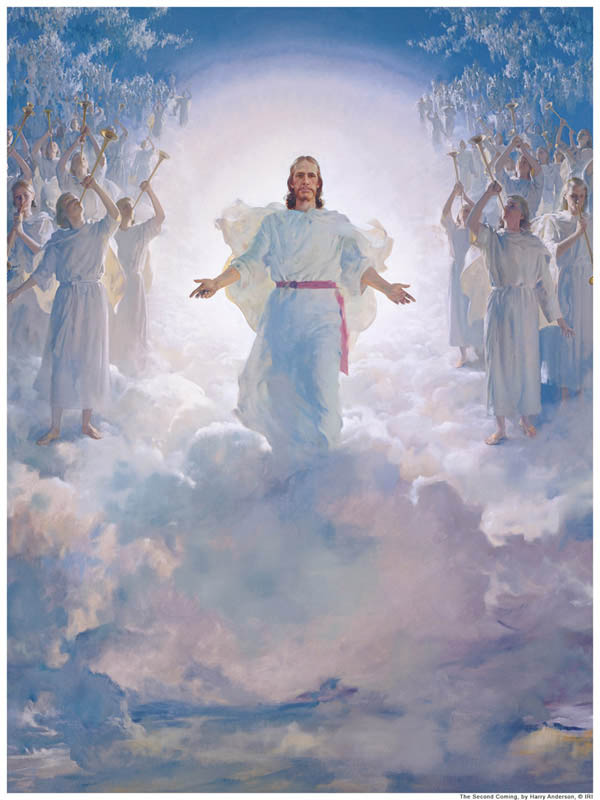 When we die, our bodies will die and be buried or otherwise disposed of, but the most important part of us—our spirits—will continue to live. We were spirits before we were born, so it won’t be a weird experience for us to be spirits again. We’ll remember having done that before.
When we die, our bodies will die and be buried or otherwise disposed of, but the most important part of us—our spirits—will continue to live. We were spirits before we were born, so it won’t be a weird experience for us to be spirits again. We’ll remember having done that before.
One thing I love about the Mormon view of Heaven is that when we die, we will still be ourselves. Whatever we worked to become in this life, we will be when we die. It never made sense to me that we’d die and suddenly become completely different. When people talk about the Heaven they believe in, I often note that they’d hate that sort of life now, so why would they love it after death? Mormons feel life has a purpose. It’s worth improving ourselves, gaining knowledge, and building good relationships because the things in our minds and in our hearts will go with us when we die.
If we’ve worked hard to be kind and loving, we will still be that way when we die, making all that work worth it. If we spent a lot of time learning valuable things, that knowledge will still be ours after death. If we put a lot of time and effort into building a wonderful relationship with our families, we’ll still have that relationship when we die. And that’s one of the best parts of Mormon life after death. God gave us our families and told us to love them and to make them a priority. Why do so many people think they can be happy in Heaven—happier than they ever were on Earth—without their families? I’m never completely happy without my family, and it would make me sad if I thought my family would be happier without me than they are with me—and yet, that is how many people picture eternity—being happy and not needing or wanting their spouses, children, parents, or siblings anymore. God is so kind and loving. He would never take those I love from me without giving me a fair chance to have them with me for eternity. Mormons believe God wants our families to be forever.
What Happens to Me After Death?
Even though we think of life after death as the last part of the story, Mormons believe there are actually a number of steps that happen after you die. If we die having the gospel of Jesus Christ and all the required ordinances, and if we were living the life we’d promised God we’d live, our spirits go to a place called Paradise. It’s a really nice place for us to stay until the resurrection. We don’t have the trials we had on Earth and everyone is well-behaved and happy, so it’s fun to be there. Joseph Smith, the first prophet of modern times, called this a state of “felicity” wherein we enjoy the relationships we have nourished on earth.
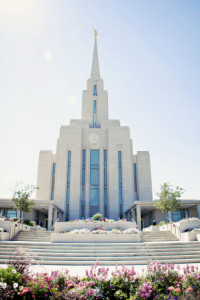 What will we be doing if we find ourselves there? We won’t be sitting on clouds playing harps (which, for me, is a good thing since I probably won’t play the harp any better than I play the piano). We won’t just be lounging around doing nothing, either. That would get boring really fast. We’ll be studying the gospel in greater depth and getting answers to some of the questions we’ve always wondered about. (Wouldn’t you love to learn the Book of Isaiah from Isaiah himself, for instance? I am hoping that will be possible there.) We’ll also be teaching the gospel to people who didn’t get a chance to learn it on Earth.
What will we be doing if we find ourselves there? We won’t be sitting on clouds playing harps (which, for me, is a good thing since I probably won’t play the harp any better than I play the piano). We won’t just be lounging around doing nothing, either. That would get boring really fast. We’ll be studying the gospel in greater depth and getting answers to some of the questions we’ve always wondered about. (Wouldn’t you love to learn the Book of Isaiah from Isaiah himself, for instance? I am hoping that will be possible there.) We’ll also be teaching the gospel to people who didn’t get a chance to learn it on Earth.
Did that last sentence catch your attention? Most people think that if you weren’t lucky enough to live when and where the gospel of Jesus Christ was taught, and to have people in your life who chose to teach it to you, that you’re simply doomed. A lot of people lived before Jesus Christ was born, including some of the great prophets—Moses, Noah, and Abraham — were they doomed because they were born before Jesus? What about people who simply never heard that there was a Savior? What about those who were raised in such a way their hearts never really opened to the possibility and never received a witness from the Holy Ghost? Are they also doomed? What happens to babies who die before they are old enough to choose? Will God punish them for something so far out of their control?
God is Fair and Loving
Of course not. When I picture Heaven, I picture myself with a totally fair and loving God. The God I know and love wouldn’t punish a baby for dying too soon. Nor would He choose to put a person in a distant land that didn’t have the gospel and then condemn him for eternity for not hearing what no one taught him. It would not be loving or fair. So, Mormons believe that if you did not have an opportunity to receive the entire gospel during your time on Earth, you’ll be taught the gospel in Heaven and have a chance to accept or reject it, just as you would have on Earth, had the option been available to you.
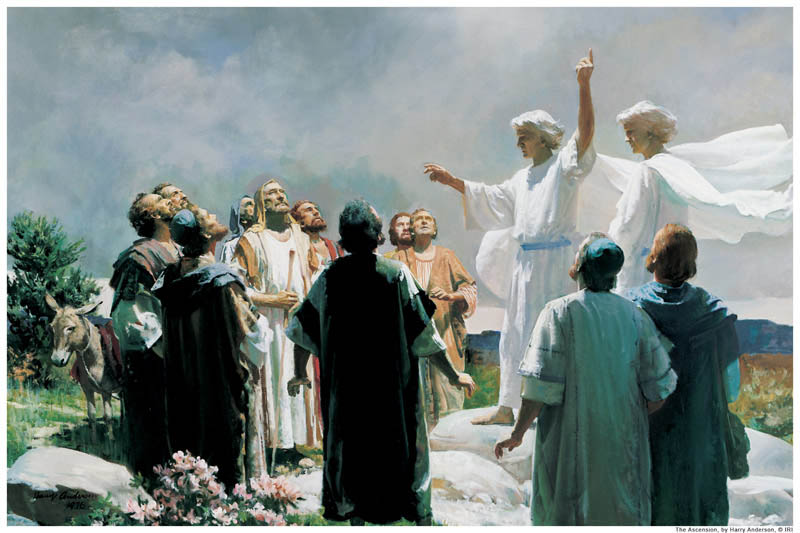 A recent study showed that Mormons are more likely than other religions to believe you can go to Heaven even if you weren’t Mormon on Earth. That doesn’t mean that if God tells you Mormonism is true and you say, “Too bad—I’m not interested,” that you can go on to live with God without any consequences for your decision. It does mean that if you didn’t get that testimony, you’ll have the opportunity later on, for the reasons I mentioned above. If a person dies before age eight, he gets to return to God automatically. He wasn’t old enough to be accountable yet.
A recent study showed that Mormons are more likely than other religions to believe you can go to Heaven even if you weren’t Mormon on Earth. That doesn’t mean that if God tells you Mormonism is true and you say, “Too bad—I’m not interested,” that you can go on to live with God without any consequences for your decision. It does mean that if you didn’t get that testimony, you’ll have the opportunity later on, for the reasons I mentioned above. If a person dies before age eight, he gets to return to God automatically. He wasn’t old enough to be accountable yet.
Everyone older than eight who dies without the gospel goes to Spirit Prison. This isn’t as bad as it sounds, though. This place is for people who were wicked during their lives, those who learned the gospel, but rejected it, and those who never had a chance to accept it. Missionaries will come to teach the gospel to the people in spirit prison. (Peter talked about this in the Bible. See 1 Peter 3:18-20.)
This will be really exciting for people whose goal is to find the truth. If they accept the gospel and repent, they will have the opportunity to leave Spirit Prison and go to Spirit Paradise. First, of course, they need all the saving ordinances, and that is what Mormon temples are for.
How Mormon Temples Help the Dead
Once that has been done, they will receive the same blessings others received when they accepted the gospel on earth. The next step for everyone is to be resurrected, which will happen in time. This will reunite the spirit and the body. The body will be perfected, so we will be able to enjoy it without the mortal issues of illness, disability, or imperfection.
Is There Really a Final Judgment?
Next, it’s time for the judgment. This is the final judgment, and it will determine how the rest of your eternity will work. Many people like to think that if they tell Jesus Christ they accept Him as their Savior, nothing else can be required. They can go on to live any life they want without it affecting their eternal lives. Of course, that really doesn’t make a lot of sense. If we really love Jesus, we will work hard to live the life He told us to live, and that means our actions are a reflection of our feelings towards Him. The more we love Him, the easier and more pleasant obedience becomes. If I say I am a Christian and then walk out the door and rob a bank, my level of commitment is not yet where it needs to be.
We need to be worthy to be in God’s presence. Heaven isn’t going to work as a place of peace and joy if it’s filled with people who are comfortable with sin. Heaven will be no better than Earth under those circumstances. And so, while we are not saved by our actions, our actions do matter. We have a moral responsibility to repent of our sins—not just once, but always. Then we have to continually perfect our lives to become as Christ-like as possible. We need to do this as an act of pure love for the Savior, not as a way to “earn” Heaven. Motive also matters.
In Heaven, if we are permitted to return home to God, we will be surrounded by people who share our values and our way of life. In fact, regardless of where we end up, we will be with others who are like us. We will be comfortable in our final home. Mormons believe that Heaven will have several levels, allowing us to spend eternity in a place suitable to our level of commitment to God and Jesus Christ. All but the place reserved for the very most wicked will be places of happiness.
Learn more about Heaven.
As a Mormon, I’m not afraid to die. I know what God has asked me to do and I know He never asks me to do anything I can’t do. My responsibility is to learn as much about Him and about Jesus Christ as I can, to use them as my role models, and to put their requests above my own wishes. While it’s my responsibility, it is also my privilege as a daughter of God. That’s how life after death looks to me.
About Terrie Lynn Bittner
The late Terrie Lynn Bittner—beloved wife, mother, grandmother, and friend—was the author of two homeschooling books and numerous articles, including several that appeared in Latter-day Saint magazines. She became a member of the Church at the age of 17 and began sharing her faith online in 1992.

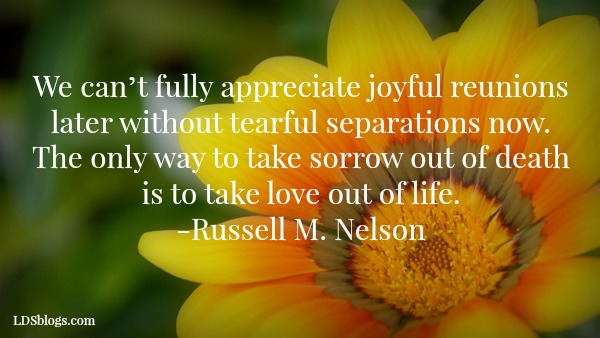
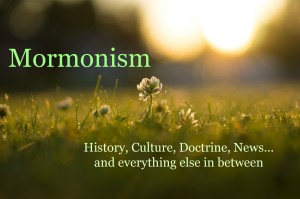





Trackbacks/Pingbacks